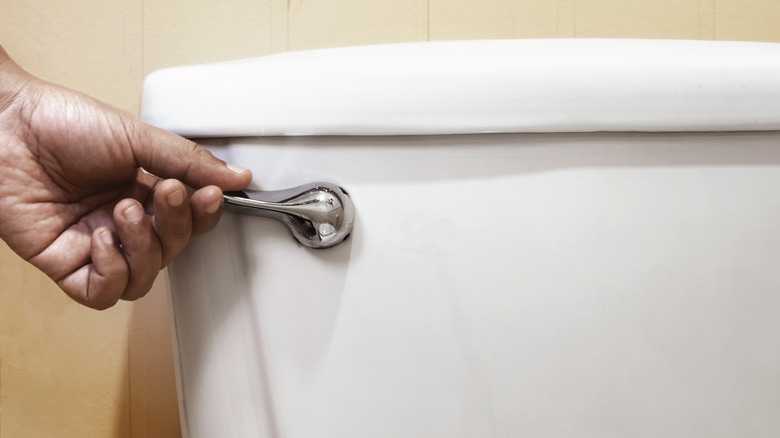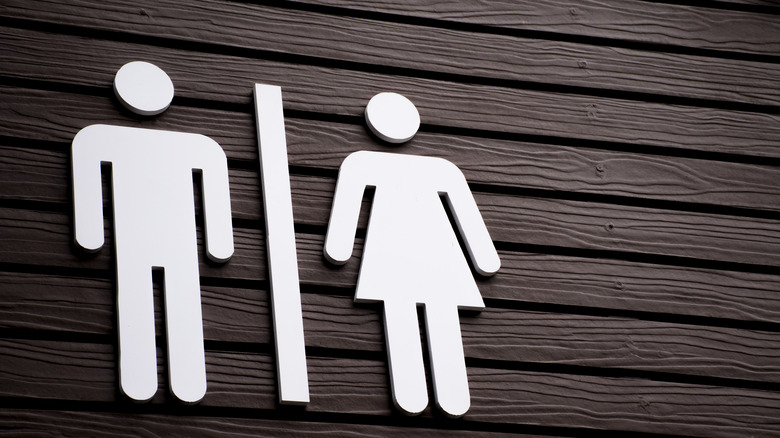New Study Shows The Smart Way To Use A Public Restroom During The Pandemic
Public restrooms have many people a little more nervous than usual with the COVID-19 pandemic. Not only is the bathroom itself a concern, but experts say you should be weary of flushing a toilet and sticking around afterward.
A study from Florida Atlantic University's College of Engineering and Computer Science found that flushing the toilet releases large quantities of microbe-containing aerosol droplets that can contain pathogens that cause COVID-19, as well as other viruses like Ebola, norovirus and SARS-COV-2.
"Aerosolized droplets play a central role in the transmission of various infectious diseases including COVID-19, and this latest research by our team of scientists provides additional evidence to support the risk of infection transmission in confined and poorly ventilated spaces," Stella Batalama, dean of the College of Engineering and Computer Science, said in a news release.
What should you do to battle airborne droplets in a public restroom?
Because these pathogens are released into the air and it's rare for there to be toilet seats or urinal lids in public restrooms, it is not recommended to linger after flushing the toilet (via Best Life). The research team called public restrooms a "hot bed" for airborne diseases.
Researchers found that after three hours of flushing, the total number of droplets were in the tens-of-thousands and remained for a significant amount of time, according to the school's website. They also found that closing the lid on the toilet didn't make much of a difference, as the droplets are so small they can make it through small spaces between the toilet lid and seat. The droplets can sometimes be suspended in the air for several hours at heights of up to 5 feet for 20 seconds or longer post-flush.
The study's results suggest that better ventilation in public restrooms could mitigate the risk for contracting airborne illnesses via aerosol droplets, according to Best Life. In the meantime, it is best to wear a mask when visiting a public restroom during COVID-19.

